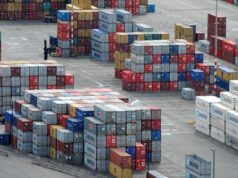The coronavirus disease (COVID-19) pandemic has been “very disruptive” to supply chains, according to results of a survey conducted by Thomson Reuters.
Due to lock-downs, border closures, restrictions on the movement of people and goods, and other preventative measures – many businesses are struggling to get the parts, materials and products they need to keep their businesses running, according to a survey during the recent “Impact of COVID-19 on Global Supply Chains” webinar by the multinational media conglomerate.
The survey aims to understand how COVID-19 has impacted businesses, their supply chain and operations across MENA (Middle East and North Africa), Africa, India, and Asia Pacific regions.
Close to half or 48.80% of webinar attendees said the COVID-19 pandemic has been “very disruptive” to their supply chains, while 41.50% said it has been “somewhat disruptive”.
On its website, Thomson Reuters said this comes at a time when increased protectionism was already having an impact on trade flows and supply chain management. According to the survey, 63.50% had already anticipated an increase in the nationalization of supply chains, before the crisis delivered a greater blow.
The World Trade Organization predicts that world merchandise trade will fall by between 13% and 32% in 2020 due to the pandemic. A recovery could be on the cards for 2021, but this is dependent on how long the outbreak lasts and how effective the various policy responses are.
When asked what factors have had the greatest impact on their supply chains since the virus outbreak began, a third or 33.30% cited a lack of visibility of events and possible alternatives; 26.70% said a shortfall of suppliers was a critical issue; and 23.30% pointed to border closures.
“In order to understand the nature of these challenges better and mitigate them as far as possible, supply chain visibility is crucial. Right now, organizations need to understand the impact that the COVID-19 fallout is having on their supply chains, so that they can develop alternative routes sooner rather than later,” the company said.
“While it is incredibly challenging to prepare for a global pandemic, the speed and scope of the COVID-19 outbreak has underscored the importance of robust business continuity planning going forward, with regular stress testing,” it added.
Three quarters or 75.30% of the survey respondents said their businesses had not been prepared to meet unforeseen circumstances on the scale of the COVID-19 pandemic.
On a more positive note, 33.30% said their businesses did have sound strategies in place to mitigate COVID-19 related supply disruptions and that these are “going according to plan”, while a further 43.60% are now in the process of developing crisis response plans.
Further, 83.75% of the survey respondents say they see their businesses turning towards technology to improve supply chain visibility and manage future disruptions effectively.
“Given how unpredictable the situation is, no business can plan for full immunity from the ongoing impact of the current crisis. However, modern digital technology can facilitate a proactive and strategic response to current and future supply chain disruptions,” Thomson Reuters said.
It added: “Uncertainty will be the new normal for the remainder of this year and potentially longer. It is therefore critical for all businesses involved in trade to ensure they have the processes and systems in place that support virtual ways of working, increased agility and clear visibility along the supply chain. With the right tools in place, businesses will be better positioned to rebuild their supply chains and increase business resilience in the years to come.”









